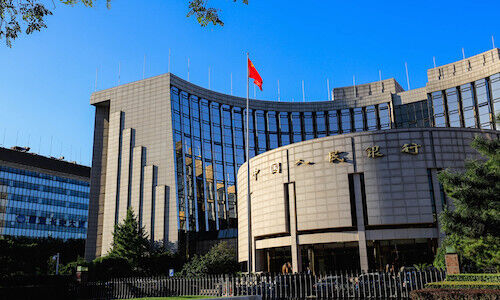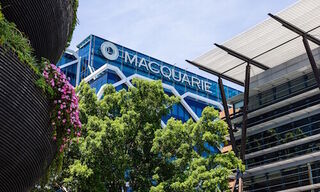Chinese authorities delivered a stimulus package that was more aggressive than expected. Nonetheless, private banks did not much change their stance on the country’s economy and assets.
On Tuesday, China’s central bank announced the largest stimulus package since the pandemic. The People’s Bank of China (PBOC) said it would reduce the reserve requirement ratio by 50 basis points (bp) with potential for an additional 25 to 50 bps cut before the end of the year. It also said it would cut the 7-day reverse repo rate by 20 bps to 1.5 percent alongside a series of other easing measures aimed at the real estate and equity markets.
While the package was more aggressive than expected, private banks did not much shift their stance regarding China’s economy and markets.
Positive Surprise But Not Enough
According to a note by UBS Global Wealth Management, the PBOC’s announcement was «slightly more aggressive than expected, though we think more fiscal intervention is needed».
«To break the ongoing deflation-deleveraging loop, we think monetary easing alone is insufficient and that additional fiscal support must play a bigger role,» the bank said. «More fiscal stimulus could come in October in the form of a budget revision, in our view, especially if third-quarter GDP remains well below the 5 percent level.»
Job Market is Key
Standard Chartered also believed that the latest measures would not be enough to trigger a reversal, highlighting employment as the key driver instead.
«Fiscal policy support may come in a more measured pace, given declining fiscal revenues, or could surprise on the upside should there be ample new government bond issuances,» the bank said in a note. «Stimulus measures may not bring about a sustained recovery of property prices and sentiment if the job market does not improve.»
US Election Risk
In addition, China will also have to consider geopolitical risks, mainly from the outcome of the upcoming US elections in November and the subsequent policy decisions from Washington.
«If China wants to neutralize the impact of any new punitive Trump tariffs, a meaningful one-off yuan devaluation could be necessary,» said Lombard Odier in a note.
«Conversely, if Kamala Harris wins, the dissipation of additional tariff fears could provide an improved backdrop for both Chinese policymakers and the market. Consequential decisions on fiscal or monetary policy therefore will likely wait for the US election, leaving more technical tweaks and monetary policy signals as the interim option.»
Hold Still on Outlook
As a result, Lombard Odier retains a cautious long-term outlook on China’s economy and assets with a neutral stance on the latter for the time being. Standard Chartered is also neutral on Chinese equities with expectations of modest near-term upside.
UBS anticipates that the rate cuts and capital market support will benefit state-owned enterprises concentrated in high-dividend sectors, including utilities, telecoms, energy firms and financials.



























